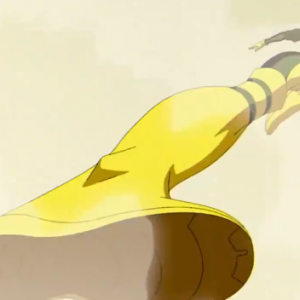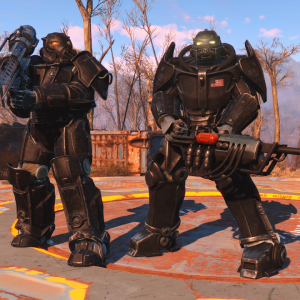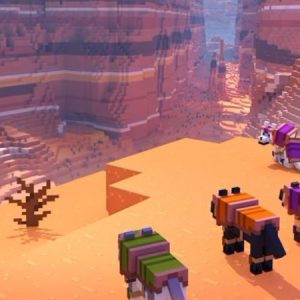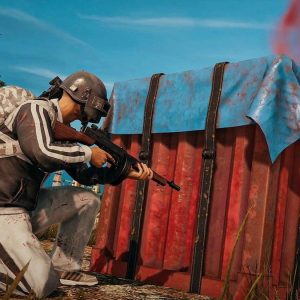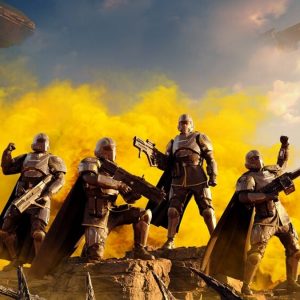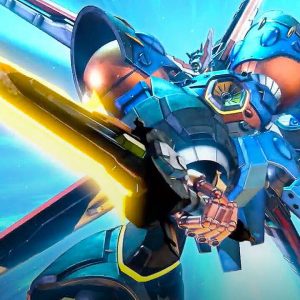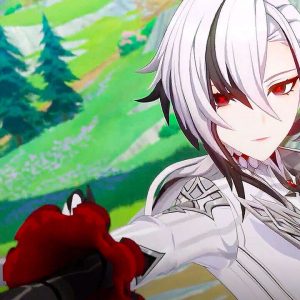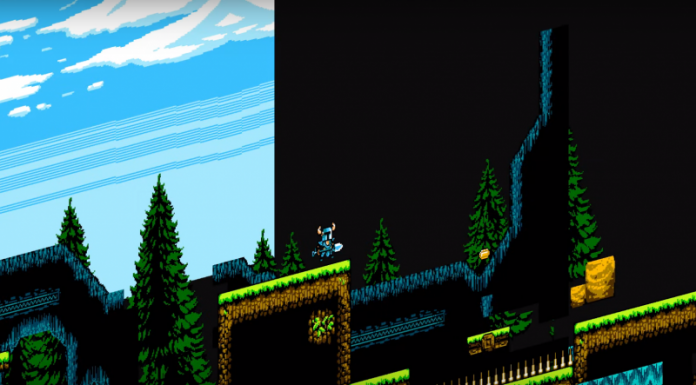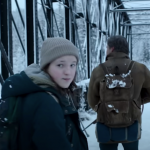is a much more agile game now than it has been in the past. This year alone we’ve seen a regular cadence of changes to the core game – nerfs, buffs, cards going to the Hall of Fame, as well as the introduction of a brand new esports program and brand new format for competitive play – Specialist. And right from the get-go, the Hearthstone esports team said that if Specialist didn’t pan out the way they hoped, they’d look at changing it. And that’s exactly what has happened – the team recently announced that Grandmasters season 2 would move away from Specialist and use a tweaked version of Conquest that introduced the ability for players to “shield” one of their four decks to prevent it being banned.Specialist isn’t quite finished, however. Right now we’re going into day three of the Masters Tour Seoul tournament, which is still using the format, as are the Masters Tour Qualifiers for Masters Tour Bucharest. To find out more about the changes, I caught up with Sam Braithwaite, Global Director of Blizzard Esports, and Alex Charsky, Product Manager for Hearthstone Esports.
IGN: Before we talk about the new format, can you give me a breakdown of 2019 so far – the strengths and weaknesses of not just Specialist but the esports program as a whole. How has it gone so far?
Alex Charsky: Well, I think when we first started 2019, we had a couple of goals in mind. That was making sure that the format was easy to digest for players, it was compelling, it was interesting to watch. So having finished our first season of Grandmasters, I think we’re very excited with the results. It had a great viewership for us. It achieved the goals of having recurring players being shown off on the broadcasts. We were also very excited about our first Masters Tour in Las Vegas, and now this is our second Masters Tour of the year. We see, once again, familiar faces making it to the Masters Tours and we’re excited to provide some consistency for players to play Hearthstone all over the world.
Sam Braithwaite: One of the big strengths that we had going into this year is… I felt like we had probably the biggest momentum we’ve ever had outside of a World Championship event for Las Vegas and for this event in Seoul and it kind of goes in hand with one: we have Grandmasters which is developing these star players that are competing on a regular basis where you’re building familiarities with them based off of national pride or deck lists that they’re submitting, whatever it is, but we also have, y’know, 250 players that are coming in through the Qualifiers and so there was just never a tournament in the history of Hearthstone where we had 350 of the best players in the world all sitting and playing Hearthstone at the same time for $500,000. Our Hearthstone Masters Tour Las Vegas actually saw some of the best viewership in several years of Hearthstone. It was great to see all of that momentum kind of catapult into a very strong event.
“
I think that if we really were to look at and analyse some of our weaknesses that we had this year, it would definitely be at the beginning of the year, the Masters Tour Qualifiers. We had a goal in mind of what we wanted to achieve, but we definitely I think missed the boat in the requirement of what it took to compete in one of those. We made a lot of changes over the course of the year, whether it’s switching to single elimination, reducing some of the rounds, reducing the number of Qualifiers and rewarding top two rather than just the first place, just because we wanted the barrier of entry to be a little bit lower.
It’s not our goal or intention for somebody to sit around and play for 10-12 hours and grind these out multiple times in a week. We want the experience to be fun and exciting. We want people to be stoked to join a Masters Tour qualifier and have a thrill of winning those and so we’re constantly iterating on those and we definitely have more in store for the rest of the year.
IGN: It also it didn’t help having Control Warrior mirrors out of the gate, but that didn’t last very long.
Alex Charsky: The game team’s been very responsive to those sort of needs and I feel like we have a great bond formed with them in terms of them providing the proper support to make sure that those metas don’t necessarily stay for very long.
IGN: Yeah, it’s been a very proactive year on everybody’s behalf so far.
Alex Charsky: We’ve been very, very happy with that.
IGN: So tell me a little bit about the ways in which the Specialist format played out the way you thought it might, and the ways that you didn’t expect it to. Also just the response to the format by pro players and the community. It’s been pretty mixed, right?
Alex Charsky: Yeah, admittedly it has been mixed and I think one of the things that we endeavour to do this year is to really listen to the community and about a month ago we announced changes for the Grandmasters season two moving away from the Specialist format into Conquest with a shield phase. I think that’s an example of us being able to listen to the player community and adjust our course of action. If players want change, we’re happy to listen to them. We’re happy to make those changes.
Sam Braithwaite: Yeah and we also recently sent out surveys to all the Qualifiers players. We’re not tone deaf that there’s another half of our community that is both frustrated and/or enjoy Specialist format and we’re going to be taking those into consideration when we look at changes. For us, we were really looking at getting over Masters Tour Seoul before we implemented any changes to the Qualifiers just because everything kind of led up to this, and to put in a change at the last minute right after an expansion is launched? We just felt like that was the wrong move on our end, but at the same time I think that I actually really enjoyed Specialist format in [that] I think that there is opportunities where Specialist format shined.
“
I agree that Grandmasters and Specialist, it didn’t really work out in the way that we imagined, but I actually think that if we look back at Masters Tour Las Vegas, Specialist format actually worked pretty well and the best of three format worked pretty well in that type of environment. It’s always interesting because when we announced the changes to switching to Conquests with a shield phase, looking at the comments and the conversations, there were a lot of people that were casual viewers that did tune in and enjoy the Specialist format and we’re hoping that they’re still going to be able to enjoy Conquest with a shield phase and once again we are evaluating the Qualifiers and Masters Tour formats moving forward.
Alex Charsky: I think it’s a little bit easier for us to poll all the Grandmasters and hear their thoughts. It’s taking us a little bit longer to listen to the rest of the community and we don’t want to discount their opinions and we want to make sure that everyone is heard and that’s why we launched a survey like Sam said and we’re just taking a little bit of time to collect those results, sort of see what the community wants and we’re definitely not opposed to changing things. We’re very open to change.
IGN: How soon might you act on that? Can you give me any early indication of what people are saying?
Alex Charsky: Unfortunately we haven’t collated all the results just yet. It is definitely on my list of things to do as soon as I get back from this event. I think the earliest we’ll be acting on this is when we start the next qualifying season. There’s very natural ending point when Bucharest Masters Tour Qualifiers will end in I think two weeks. That’s the opportunity for us to re-evaluate what’s working and what’s not and make changes…
Sam Braithwaite: And with that said, we aren’t opposed to changing the format for Masters Tour Bucharest. We’re just waiting to get through this event before we engage on that.
IGN: Sorry, do you mean during Qualifiers or post Qualifiers?
Alex Charsky: Since the Qualifiers sort of lead and then there’s Bucharest in October, I think we’re looking at a timeframe after the Qualifiers but hopefully before Bucharest.

IGN: Got it. So is there a world in which we do just have multiple formats, like you stick with Specialist for Masters Qualifiers and Masters Tour events and then we have Grandmasters on a different thing? Does it matter if it’s unified or not?
Alex Charsky: I think it depends. I think viewers certainly appreciate a more consistent experience throughout the entire three tiers and for people that engage, one of our thoughts was is that at Grandmasters, as I watch Grandmasters and I’m a hopeful upcoming Hearthstone player, I can take some of those strategies that I see on TV and then translate them into my own tournament performances and Qualifiers. However, having said that, we’re not opposed to doing slight differences in the format. I think it’s important for players to be mostly happy and we’ll take feedback from the players.
Sam Braithwaite: It’s a tough balance, right? Because there’s this audience out there that watches competitive gameplay to get better at the game and to improve their own tournament performance. We would like to imagine this world where people who are grinding these Qualifiers or watching Grandmasters in the Masters Tour events, watching what the best players in the world do, emulate them and try to find their own success inside of these Qualifiers, but there’s also this entire audience that watches it purely for entertainment value and has no interest in competing whatsoever and there’s also an audience that doesn’t even play Hearthstone anymore but just watches the esports because they used to play and they’re very fond of it, right? It’s very difficult juggling all three of those personalities and types and finding out which works best. We went into this year with a pretty firm belief that we needed a unifying format for all tiers of competition.
I think that the community has kind of let us know what their thoughts are to that and we’re kind of re-evaluating and I think us rolling out Conquest with a shield phase is even just our first steps kind of saying, “Let’s try this out. Let’s see what works.”
“
IGN: I mean a big part of the move to Specialist was also making the ladder experience closer to the tournament experience, right? So there’s going to be a bit of a disconnect no matter what you do because Conquest with a shield phase sounds great from a viewing perspective, but it also sounds like it’s moving away from what the client is offering.
Alex Charsky: That’s a fair observation I think. Again it’s a balance, right? We had our goals and sort of thoughts on unifying the format to the ladder experience. It seems like the feedback has been mostly “Please let us play multi-class formats.” So we’re not opposed to switching back.
IGN: I mean what would be really great is if we could play Conquest with a shield phase in the client. We’ve just heard that China has implemented this via NetEase, some kind of tournament support. When is this going to actually come to the game here?
Sam Braithwaite: Yes, I mean that’s something that the game team put out a statement on* and if we look at what NetEase is doing, it’s more of a third party add-on. It doesn’t work on mobile and right now over 50% of our user base is on mobile and so there’s obvious restrictions. I think what they’re doing is interesting and cool and we’ll be looking at it, but we’re on the esports team. We don’t speak for the game [team] unfortunately, so we have to reference the statement* that they made earlier.
[*Editor’s note: Sam is not referring to a new statement, but what the team is already on record as saying regarding tournament functionality.]
IGN: Okay, no problem. To be honest, I am kind of surprised that you guys are still using Battlefy after the leak at Vegas. Why continue to use it?
Alex Charsky: Well the leak was definitely unfortunate. As soon as we found out that players were affected, we immediately began working with Battlefy in order to fix it. Since then, they’ve made a number of improvements to their platform to ensure that any of these vulnerabilities were addressed. They actually formed a team specifically dedicated to help us sort of shore up those weaknesses. So we love them and we love working with them and I think they’ve been, aside from the stumble, I think they’ve been a great partner.
IGN: Surely though, that gives you guys leverage to push for this in the client, right? I mean it makes everybody look bad.
Alex Charsky: I mean we’re obviously working with the game team, but again, these sort of decisions you’d have to defer to the game team in terms of timelines or anything like that.
IGN: Tell me a little bit about deciding on this new format. Why this format in particular, and what do you think its strengths are going to be?
Alex Charsky: We actually asked the Grandmasters what they think, what they feel is the most compelling format for them to compete in work over week and sort of balanced it with feedback from viewers and the audience that watches those matches… and we actually set out some of our goals and shared those goals with Grandmasters, right? Not just “Help us design the most competitive format,” but also “Help us design a competitive format that is compelling to watch for people,” and this is what we collectively landed on is Conquest with a ban, however, the additional part of skill testing is that we don’t want to lose the best decks or players basically having the opportunity to play the decks that they’re typically known for.
That was one of the sort of significant drawbacks of any format with a ban. Orange is a well-known Druid player and he doesn’t get to play Druid anytime in a tournament because people just ban out Druid against Orange and that sucks. So we worked with them to modify it slightly so now Orange gets to shield Druid if he really wants to do it to show off his mad Druid skills.
IGN: Staying on Grandmasters, and putting aside the format, what has the feedback from players been like? What did you guys think about Dog deciding not to continue into season two? Was that a surprise?
Alex Charsky: We wish Dog the best in whatever he chooses to pursue next. We obviously were sad to lose him from Grandmasters. He’s a great player as shown by his number one finish in Las Vegas. In general, I think Grandmasters are starting to sort of see and appreciate what a consistent ecosystem is doing for them. They’re all very excited to take additional interviews with the press. They are the stars when they show up to Masters Tours [events] and they do – most of them travel to every single Masters Tour and they’re enjoying the competition. I think it’s going well and I think the majority of them like the experience.
IGN: Did you think there’s a way to keep people with a really high profile stream happy in this ecosystem? I definitely agree that it’s doing a lot for the vast majority of the players, but it’s a real shame to see somebody that high profile not be in the second season.
Sam Braithwaite: Yeah, I mean I think if we look specifically at Dog, if you look at his announcement, he wasn’t just stopping to play Grandmasters. He actually retired from competitive gaming. He re-signed an agreement with Team Liquid to be a content streamer. That’s the direction that he wants to go down. He got his big win. It’s something that he was chasing for a while and he’s satisfied and he is looking to move forward and when we look at Gallon coming in, we see that as an exciting opportunity for new blood to replace him and somebody that fans like and has constantly been a top performer and somebody that we are actually looking at [for] Grandmasters when we initially launched the league.
If we think about the feedback that we’re receiving from the Grandmasters players it’s… being put on edge, right? Like the stakes. The stakes are low because there were no relegations in season one and that’s something that we’ve already addressed and talked about which is, we were launching something brand new.
We needed to have some consistency in the first year because we need to put our heads down to help execute on these Masters Tour events – something that we had never done before, to help run our qualifying events. Having a stability of players from season one to season two allowed us to focus on other things rather than having to generate media and plug new players and to help generate and build new superstars. We now have that runway. Looking into next year, we already announced that we’re going to be changing the amount of relegations that we’re going to be doing before we even have relegated the first player.
So I think that’s some of the feedback that we’ve gotten is that the stakes are too low and that we need to increase the amount of people that are coming in and the opportunities that exist for everybody else. I think the format is obviously feedback that we received and that’s something that we’re going to be changing as well, but I think that in general they’re enjoying the ability to be able to compete on a very regular basis and I think that it gives them an opportunity to grow their fandom as well and not only that, I think it’s great to have Hearthstone content live every Friday, Saturday, Sunday throughout the entire duration of the summer pretty much.
IGN: For sure. So speaking a little bit about mobility into Grandmasters, obviously that’s a really big topic just with the pro player base and aspirational pro player base in general. Have you guys considered having a secondary league or a minor league that then feeds into Grandmasters to get more players in the system? Because even if you change to, say, four relegations per region, it’s still really, really tough to get a spot.
Sam Braithwaite: Yeah, I mean that exact same question that you’re posing exists for almost every single competitive esport that’s out there. It is the best of the best. It is a very low number of people that get relegated in or relegated out of almost every sports league and competitive gaming league that exists. I think that one way is to change the conversation. There is more prize money and opportunities to earn prize money in Masters Tour events throughout the year than there is in the Grandmasters ecosystem. A lot of people look at Grandmasters as the pinnacle and it leads into BlizzCon, which is exciting, but keep in mind we only had half of the year this year when we looked at what the Masters Tour ecosystem looks like.
“
With Year of the Raven and HCT concluding in April and our program not kicking off until June, what we’re really seeing is half of what a complete ecosystem looks like. I think as we move into next year, people are going to see that there’s more opportunities to compete for the Qualifier level players and the Masters Tour level players, while the Grandmasters program will stay relatively the same. I think that coupled with relegations is going to create more excitement for that second tier of competition. So I think that we’re kind of holding our ground on that because once again, people haven’t seen the full program and what the system can entail yet.
Alex Charsky: And I think again, to just refer back to our original goals in 2019, we definitely want to listen to feedback, but we also understand that some of these ideas need a little bit longer time to sort of breathe and develop and see how people really feel about them. This is one of those things that we’re comfortable re-evaluating somewhere further down the line.
IGN: And the more prize money that’s up for grabs at Masters Tour events, the more worthwhile competing becomes for a bigger part of the player base. I guess that leads into another question which is – why put a cap on the pack bundle that added prize money into the ecosystem? You could potentially just keep that on sale and create a million dollar prize pool for this event for instance.
Sam Braithwaite: Really what we look at when we talk about why we wanted to cap the prize pool on these is that this was the first time that we’d ever done something like this. We wanted to make sure that expectations were set and that we were able to follow up on it.
Once again, this is a half of an ecosystem that we’ve been developing [for] next year. We have more coming in 2020. We want to make sure that we’re able to deliver a consistent and quality experience throughout the entire of 2020 and so by capping the prize pool; one we actually feel that $500,000 is a really strong amount, and we’re spreading this out over a period of three Masters Tour events. What we really wanted to achieve and one of our main goals with the crowdfunding and crowdsourcing bundle was we wanted to make sure that some of the feedback that we had gotten when we had originally announced this program was the investment that it took to be able to go out to some of these and the risk that it takes on a specific player.
After we were able to roll this out and with a $500,000 price pool, we’re able to guarantee everybody walks away with $500 which is a pretty good amount for everybody even if they bomb out 0-3 and drop out of the tournament, “Hey I won $500,” and that I think alleviates the burden of the travel of having to go across the world for example.
Alex Charsky: I think one of the goals for us was to try to set up a very sustainable ecosystem for many years to come and that this is sort of the first step of us rolling out things like crowdfunding.
IGN: It was definitely a success.
Alex Charsky: Yeah, we’re very excited. I mean we love seeing players and you can even see the attendance here versus Las Vegas. As soon as people sort of understood that, “Oh hey even if I do really poorly in this tournament, I still get $500.” We’ve already seen an increase in the number of players who are attending this tournament.
IGN: How are you guys feeling about bringing top level competitive Hearthstone back to BlizzCon and winding up the Grandmasters year there? What are the pros and cons?
Alex Charsky: Well we’re fans of BlizzCon, so it makes sense to put the pinnacle of Grandmasters competition at one of our biggest shows. We’re very excited to be back at BlizzCon.
Sam Braithwaite: I think if we look at some of the pros, it’s perfect timing, right? Grandmasters season one, season two, when it ends it lines up perfectly for an epic conclusion there. We didn’t want to have to wait or drag it out to have a standalone event. We wanted to be able to ride the momentum of Grandmasters. There’s so much excitement around Blizzard as a whole and so many people tuning in. We wanted to capitalise on that. If we’re being honest, I would say that one of the downsides of being at BlizzCon is we’re restricted to a two day event.
If we look at the World Championship for example, 16 of the best players around the world, a four day event – that is epic and that is great. BlizzCon in itself though brings a different atmosphere and environment. There are so many people there who just love Blizzard games, that love Hearthstone. The crowd will be packed. We’re going to make sure that the energy and excitement is there. You can’t duplicate the energy at BlizzCon anywhere else in the world and so that’s one of the things that we are looking forward to.

IGN: BlizzCon always has a great vibe, for sure. Anything else you’d like to touch on before we wrap up?
Alex Charsky: Yeah, Masters Tour Seoul. It’s awesome. I mean 328 players from 49 different countries. It’s a truly international event and we’re very happy to be here and very happy that all the players chose to make a journey out here and we wish everyone the best of luck. There can only be one winner, but we hope that everyone has a great time…
Sam Braithwaite: We’re stoked. If we look at even just everything that we do with Blizzard esports, this is probably one of the most international events that you could ever ask for. The fact that there’s 320 of the best players in the world from over 40 different countries, you can’t duplicate that in any other game because of the nature of a one v one card game. That energy and that excitement is awesome. Coming off of a brand new expansion, I think people were actually expecting a much worse diversity than we actually had at this event. Yes, there’s a lot of Mages, but… even right now before we came to this interview, out of the top 20 players, we had six classes represented. If you compare that to Las Vegas, it’s a huge improvement in terms of diversity.
I think that that actually speaks to some of the strengths of the Specialist format, right after a brand new expansion. One of the questions that we do get asked is… why Specialist for this event? Well we are coming off of a brand new expansion and having our competitive players and qualified players coming in and having to focus on refining one specific deck rather than having to build four competitively viable decks, is actually a much more reasonable thing and it gives them the ability to focus and really refine what they’re doing.
I think that we’re going to see some really fun and awesome decks emerge and actually a wide diversity of decks emerge and so players now, right after a brand new expansion, are going to be looking at this and saying, “Which decks do I craft? What do I build?” Well, you’re going to have several examples from over six to seven classes that you’re able to choose from. We weren’t able to do that at our last event. That’s something that we’re really excited about.
Cam Shea is Editor in Chief for IGN’s Australian content team and tries to spend as much time as possible watching Hearthstone tournaments. He’s on Twitter.
